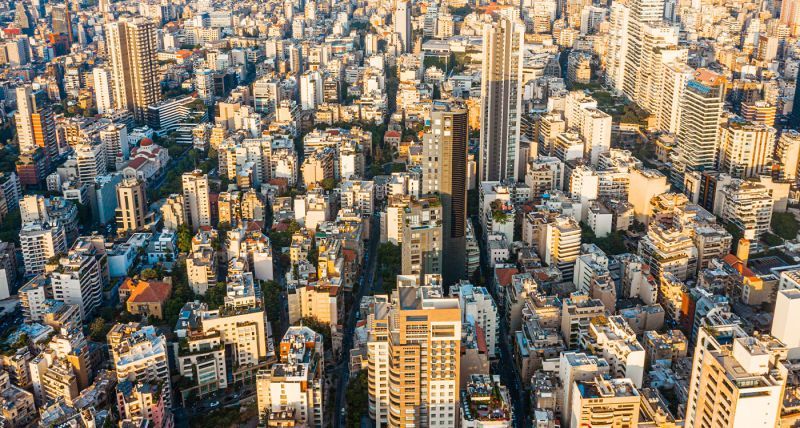
Following the election of President Joseph Aoun in January 2025 and the formation of a new government, Lebanon appears to have taken a tentative step toward recovery – at least in the real estate sector. Transactions are picking up, sellers are speculating, and buyers are reentering the market. However, mortgage loans remain conspicuously absent. Is this the beginning of an economic revival or merely a fleeting illusion?
The “political stabilization” that followed Aoun’s election in January delivered an immediate boost to Lebanon’s real estate market. “All the buyers who had been hesitant for years rushed in during the first quarter,” says Karl Kanaan, Sales Director at S. Gestion, speaking to This is Beirut. As a result, “A significant number of transactions were finalized between January and March, with prices steadily rising.”
But this wave of enthusiasm led to an unexpected outcome. “Sensing an opportunity, many property owners pulled their listings from the market, hoping to sell at higher prices this summer,” Kanaan explains. “It’s pure speculation because on the ground, very little has changed – except the general mood.”
“Today, the market is in a paradoxical state: demand is strong, but supply has tightened. It’s a complete reversal from recent years, when sellers were abundant but buyers were scarce. And those still willing to sell are often setting wildly exorbitant prices,” adds Kanaan. The result is a real estate market that is active but increasingly unbalanced.
Soaring Prices… But Only in Some Areas
“The real estate market is far from uniform,” asserts Kanaan. The differences between new and older properties, as well as between Ashrafieh and the suburbs, can be striking. To illustrate, in Ashrafieh’s new developments, prices generally range from $3,500 to $4,000 per square meter – varying based on floor level, view and building quality. Older properties in the area typically sell for $2,000 to $2,500 per square meter, depending on their condition.
In short, Beirut’s real estate market is like a bustling souk: you need to negotiate, compare carefully, and above all, stay patient.
Mortgage Lending: Only the BDH Remains Active
Despite growing demand, financing remains a significant hurdle. Traditional home lending is still largely on hold. The only source of hope is the Housing Bank (Banque de l’Habitat, BDH), which continues to support low- and middle-income households.
BDH’s President, Antoine Habib, reports a significant rise in loan applications, noting that “thousands of loans have been approved. Some have already been disbursed, while others are pending due to outstanding land registry documents. However, all applicants have received preliminary approval.”
Habib emphasizes, “The BDH remains fully committed to helping Lebanese citizens access housing, within the limits of its capacity.”
The Land Registry: A Test of Patience… But Not a Dead End
The land registry remains a major bottleneck slowing the market. While property purchases can be completed within weeks, the official registration process often takes months, or seemingly forever.
In Beirut and Mount Lebanon, land registry offices continue to face serious challenges. Shut down from October 2022 to January 2024 amid corruption investigations involving 124 officials, these services are still working through a significant backlog. Notably, the Mount Lebanon registry covers a vast area, including Baabda, Aley, Metn, Shouf, Jounieh and Jbeil, adding to the strain.
“Buyers are able to register properties in Beirut, though it takes longer than usual. Outside Beirut, the process remains significantly more complicated,” says Kanaan, a seasoned industry expert.
Despite these obstacles, a degree of stability is emerging. Supply remains tight, demand steady, and overall sentiment is far more optimistic than last year.
However, sustaining this positive trend requires more than goodwill: it calls for genuine financial support, effective administrative reforms and, most importantly, better price management to prevent homeownership from becoming an exclusive dream for the ultra-privileged.




Comments